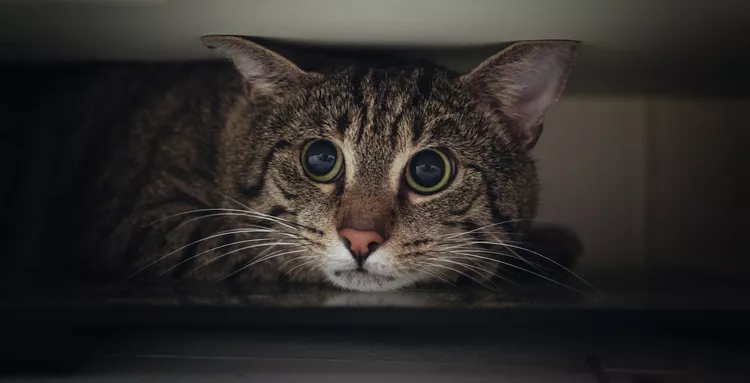
If you have a cat then you probably already know that certain things can cause it to hide, hiss, run away, and even urinate or defecate outside of its litter box. All of these behaviors can be due to stress from the environment and it's important for you to recognize them so you can do something to help your cat. Living a completely stress-free life is impossible but knowing some common causes and triggers can help you avoid unnecessary stress in your cat.
Just like people, every cat may react differently to a specific event, item, or person but there are common situations that are more likely to cause stress in your cat.
Cats are often sensitive to any household changes including when people and pets living in your home come and go. New babies coming home, grandparents coming to live with you, divorce, roommate changes, marriage, new cats and other pets, and even just someone staying for one night can all cause stress in your cat, especially if your cat doesn't already know them. Having company over for holidays is a common issue for many cats since it not only involves new people but many other stressors as well.
Odd smells, noises of construction, materials lying around, unfamiliar people, and other things involved with having work done on or around your house can cause stress in your cat. Simply painting a room or doing some light remodeling can trigger stress, too, so it doesn't have to be a major construction project to cause problems.
If your cat can hear, smell, and especially if it can see another animal outside it may be stressed. Outside cats are a common trigger for stress in your indoor cat but even being unable to catch birds outside that your cat sees can result in your cat having pent up stress.
If you have to transport your cat for any reason then stress is a likely occurrence. Not being used to a carrier, the sights and sounds of a car or plane ride, or the anticipation of the destination (such as the veterinarian) can all cause stress.
Everything from robotic vacuums to Christmas decorations to moving boxes can cause stress in your cat. Changing where your cat's litter box is located, the type of litter that is used, where your cat eats, and even where its favorite scratching posts are located are other examples of environmental changes that can trigger stress in your cat but any type of change in your home is a potential problem.
Hiding is one of the most obvious signs that your cat is stressed but it's not the only one. Hissing, running away, growling, scratching items, and eliminating outside the litter box can be other signs of stress in your cat and should not be ignored, especially if they are occurring regularly. Monitor your cat for these symptoms and think back to what may have changed before you noticed these behaviors.
Thankfully there are a number of things you can do to help your cat if it is stressed. If you can figure out the source of the stress, the best thing to do is to eliminate that source but that isn't always possible. You can't get rid of a family member or new pet or stop construction because your cat is stressed about it but that doesn't mean you can't still help your cat.
Sprays, wipes, and diffusers containing pheromones are good starting points for helping to manage anxiety in your feline friend. Products like what Feliway™ makes can be used continuously and long term or as needed. They help cats feel calm and safe but may need to be used alongside something else if they don't help by themselves.
Supplements and special diets are the next steps in helping your stressed cat. Various ingredients like L-theanine, milk whey proteins, magnolia, and phelodendron extracts have research showing they may help a stressed cat and can be found in items like Zylkene™ and even special cat foods like Royal Canin's Calm™ diet.
If necessary, stressed cats may need a combination of pheromones, supplements, diets, and even medications. Fluoxetine, gabapentin, amitryptilline, and other prescription items may be recommended by your veterinarian for stress cases that cannot be addressed with other modalities. Depending on the situation, these may need to be given temporarily or long term but if you can help your cat feel less stress than whatever you need to do is worth it.
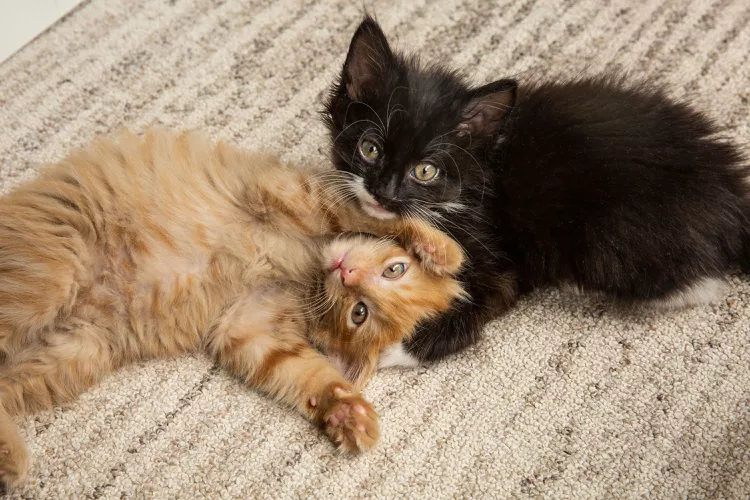
Why Two Kittens Are Better Than One
There are benefits of adopting two kittens, such as more feasible training and companionship between them.
Everything You Need to Know About Raising Your First Cat
Whether you are thinking about getting a cat or just adopted your first one, these are the things to know to make your relationship a lasting one.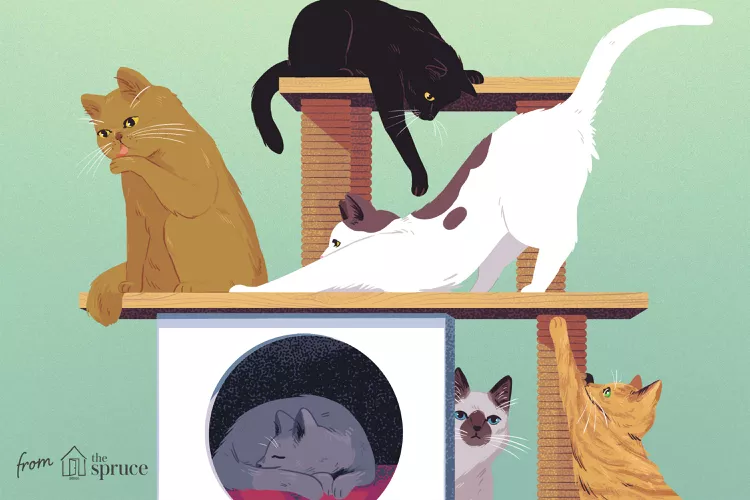
How Can I Tell the Sex of a Cat?
Telling male and female cats apart can be difficult for those who don't know what they're looking for. Here are helpful tips to discover their sex.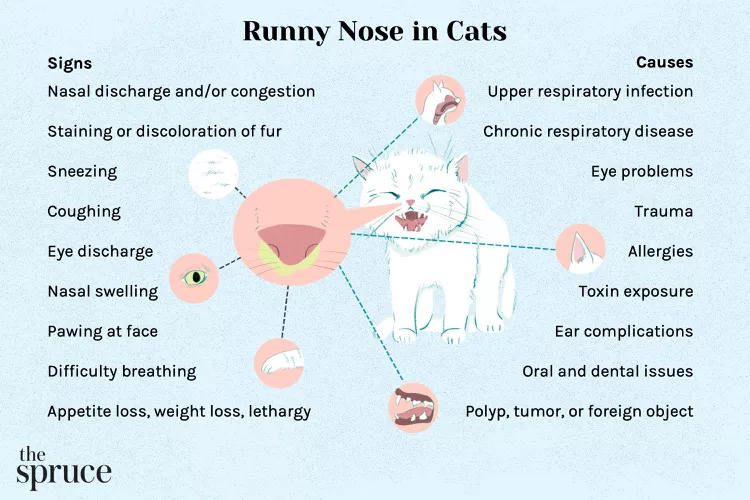
Runny Nose in Cats: Causes and Treatment
Cats get runny noses due to upper respiratory issues, but many conditions can cause this. Learn the causes of runny noses in cats and the associated signs. Find out how vets diagnose and treat cats with runny noses.
How Long Can You Safely Leave Canned Cat Food Out?
You cannot safely leave canned cat food out all day. Twenty to 30 minutes is the max, so give smaller portions and reheat food for later feedings.
Meat Byproducts in Cat Food
Most cat experts recommend premium brands of cat food that avoid ingredients like byproducts and chicken meal. Learn what to look for on the label.
How Much Wet Food to Feed a Cat Every Day
The amount of wet food your cat needs depends on factors such as age, weight, body condition, and lifestyle. Learn how much wet food to feed your cat.
Taurine for Cats
Taurine is an essential animal protein in your cat's diet. Learn more about the various ways it supports your feline's body.
The Different Types of Pet-Friendly Workplaces
Discover the different types of pet-friendly workplaces and the benefits they offer employees. Learn how to create a pet-friendly workplace and the best practices for pet owners.
8 Halloween Safety Tips for Pets
The spooky holiday can be overstimulating and even dangerous for pets. Here's how to avoid the problems caused by toxic candy and incessant doorbells.
Why You Should Keep Cooked Bones Away From Your Dog This Holiday Season
People should be aware of the dangers of cooked bones, especially around the holidays when they might be more accessible to your pup.
Can Dogs Eat Squash? Here's What a A Vet Thinks
Dogs can safely eat squash as long as it's prepared correctly. Find out how to properly feed this versatile fruit to your dog.
16 Small Cat Breeds That Are Petite Purring Machines
Small cat breeds like the Singapura and munchkin may be smaller than an average housecat, but they leave a giant imprint on your heart.
10 Best Cats With Big Ears
Cats with big ears often look extra endearing. Check out some common big-eared cats, including the Abyssinian, Devon Rex, Siamese, Sphynx, and more.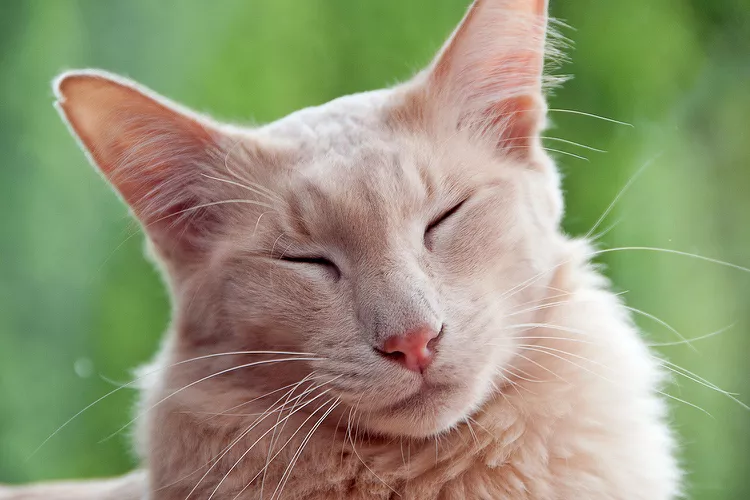
Javanese (Colorpoint Longhair): Cat Breed Profile, Characteristics & Care
The Javanese is a semi-longhaired, color-pointed cat of Siamese type. They are related to the Siamese, Colorpoint Shorthair, and Balinese breeds.
How to Stop Aggression in Dogs
Dog aggression can be a serious behavior issue for pet owners. Learn how to stop aggression in dogs before someone gets hurt.
Should Dogs Be Allowed on Furniture?
Should you let your dog on the couch or in the bed with you? Are there any reasons we should not let dogs on the furniture? Here's what to know.
Why Do Dogs Eat Rocks?
One of the most common non-food items for dogs to eat are rocks. Here's what to know about why dogs eat them and how can you stop your dog from eating rocks.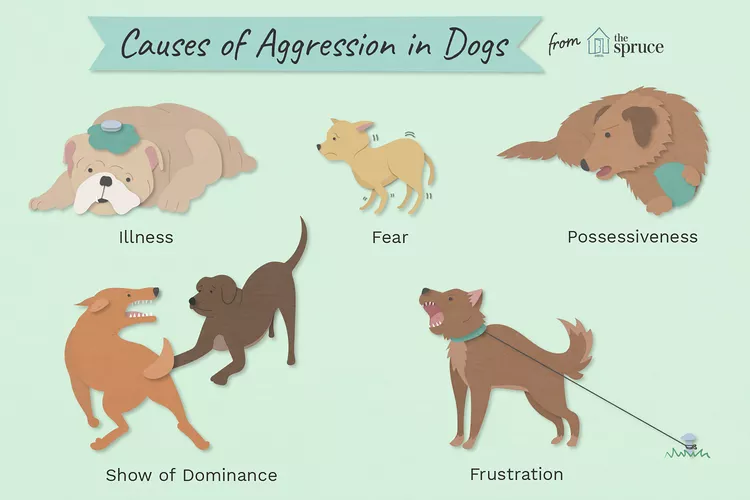
Why Dogs Get Aggressive and How to Stop It
Why is your dog biting you aggressively? Sometimes dogs can become aggressive with little warning. Find out what causes your dog to become aggressive so you can work with the behavior.
Thai Ridgeback: Dog Breed Characteristics & Care
Learn all about the Thai Ridgeback, a rare breed from Thailand. Find out how to care for the loyal dog and where to buy or adopt one.